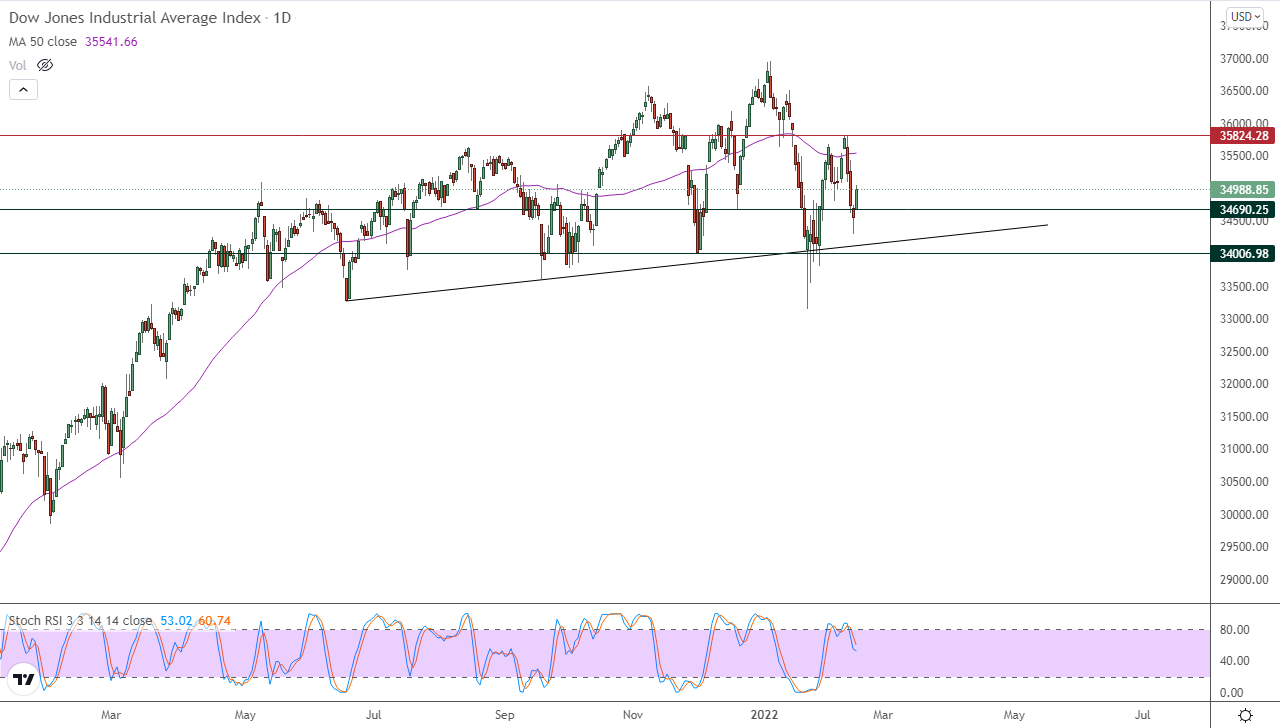The Dow Jones Industrial Average rose in its recent trading at the intraday levels to achieve gains in its last sessions by 1.22%. It then gained about 422.67 points and settled at the end of its trading at the level of 34,988.85, to break the index by closing a series of losses that continued for three consecutive sessions, the last of which was a decline By -0.49%.
The latest update on US producer-level inflation came hotter than expected, after last week's consumer price reading, where the January Producer Price Index, or PPI, showed a 1% monthly rise, double the expected 0.5% increase that economists had been expecting. In an opinion poll conducted by the Wall Street Journal. While the increase in wholesale prices has slowed over the past year to 9.7% from 9.8%, the index's biggest advance since its formation in 2009, and one of the fastest since the early 1980s.
Markets want to see the increase in corporate costs slow, which means profit margins have a better chance of growing. Also, less pressure on companies to raise prices could mean slower inflation and the Fed's tendency to raise rates less often than currently expected.
This is because last week's jump in the Consumer Price Index made it clear that the Fed could easily raise the benchmark lending rate by 50 basis points instead of just 25 points.
In other data, the New York Fed's Empire State Business Conditions Index rose to 3.1 in February, after a surprisingly negative reading of 0.7 in January. Economists had expected a stronger recovery to a reading of 10, according to a survey by the Wall Street Journal.
Technically, the index’s rise came as a result of the stability of the support level 34,690.25, which gained it some positive momentum that helped it compensate for part of what it incurred from previous losses. Despite that, the index continues to suffer from the continuation of negative pressure due to its trading below the simple moving average for the previous 50 days. It is under the control of a bearish corrective wave in the short term, in addition to the influx of negative signals on the RSI indicators, after reaching overbought areas. The index is moving along a major bullish slope line in the medium term.
Therefore, our expectations suggest a return to the index's decline during its upcoming trading, especially in the event of its stability returning below the level of 34,690.25, after which it will target the main support level 34,000.

